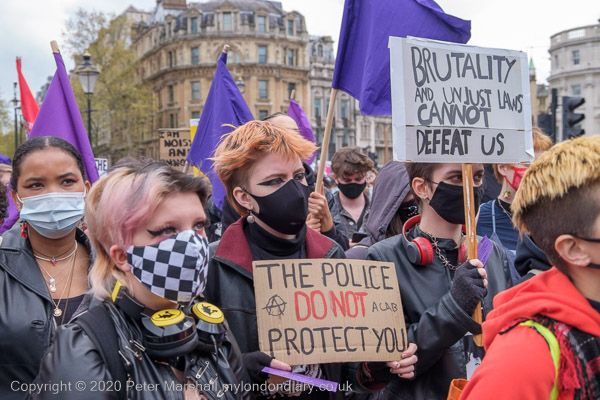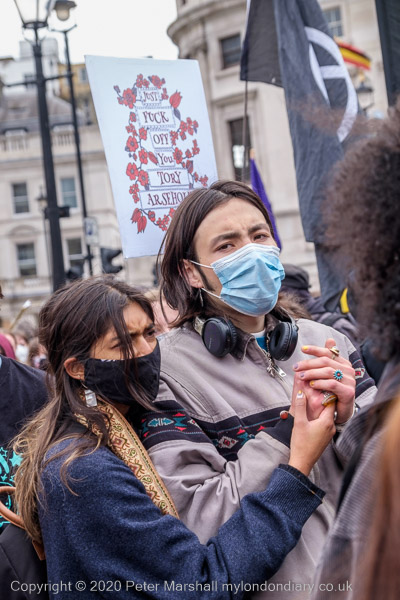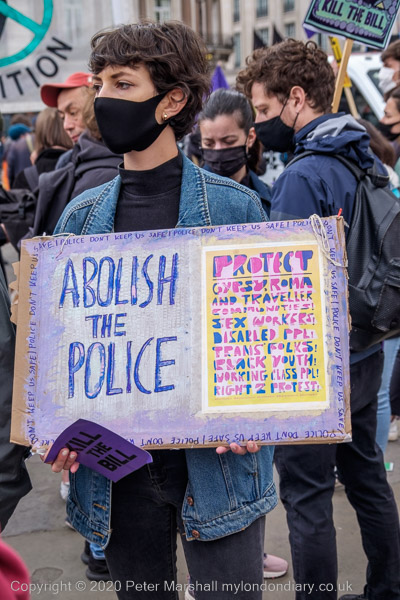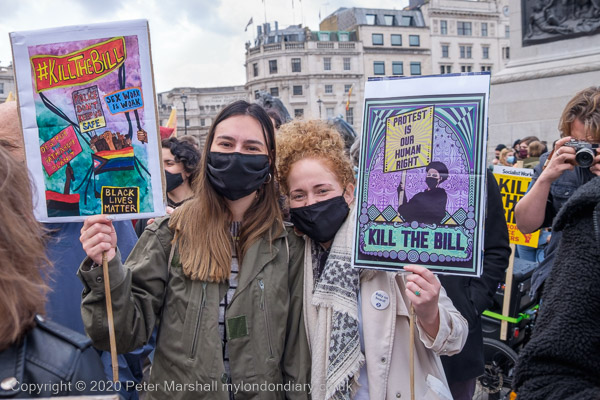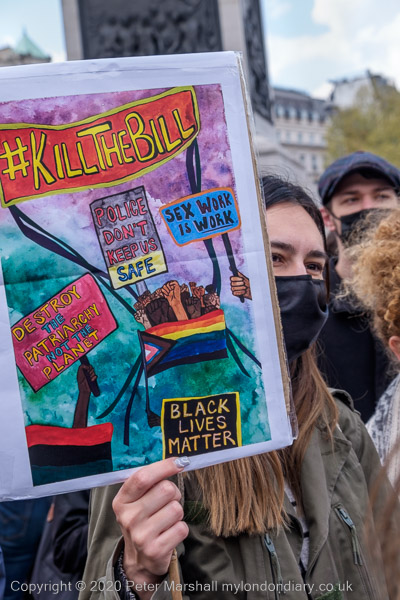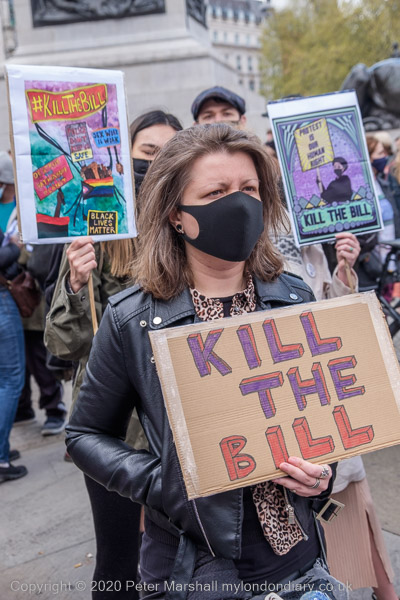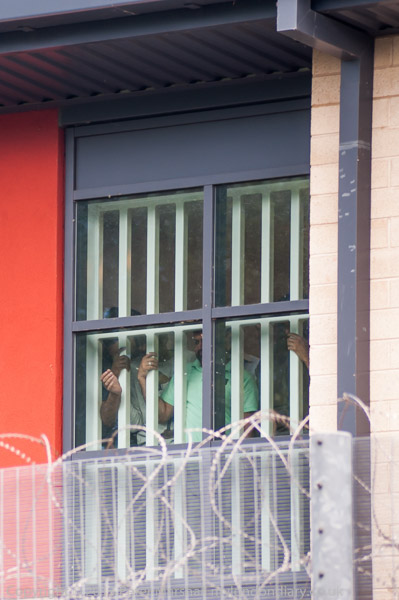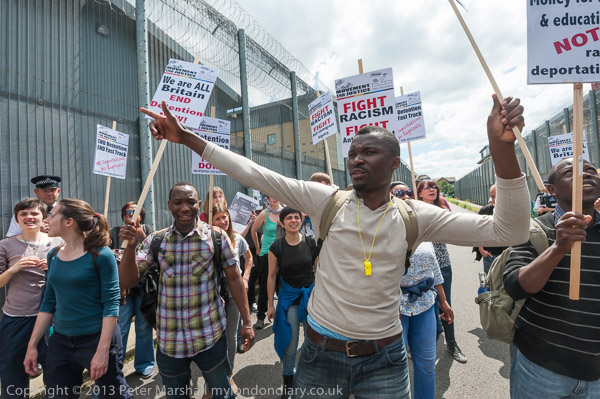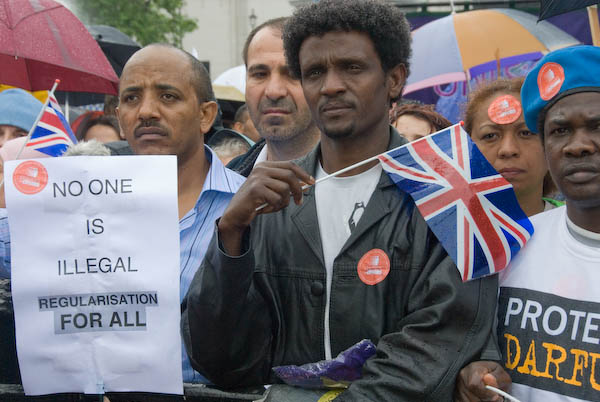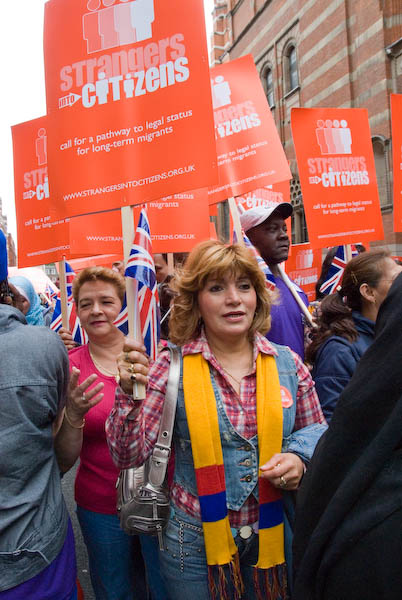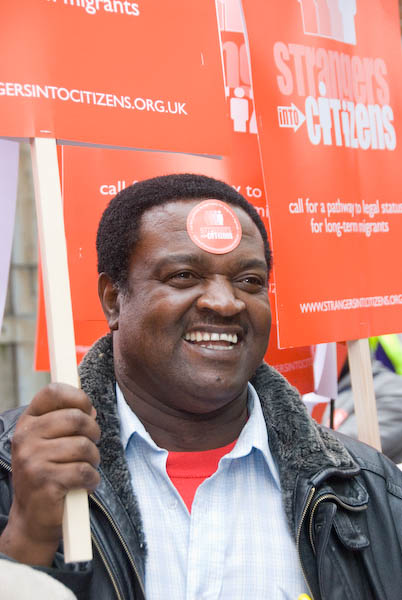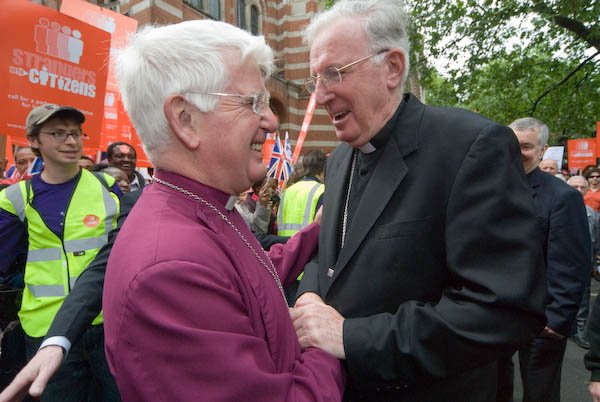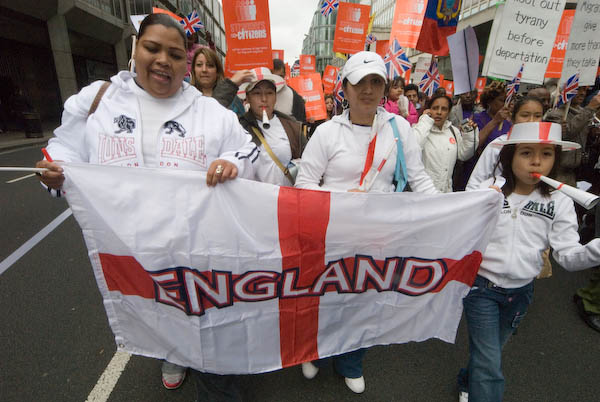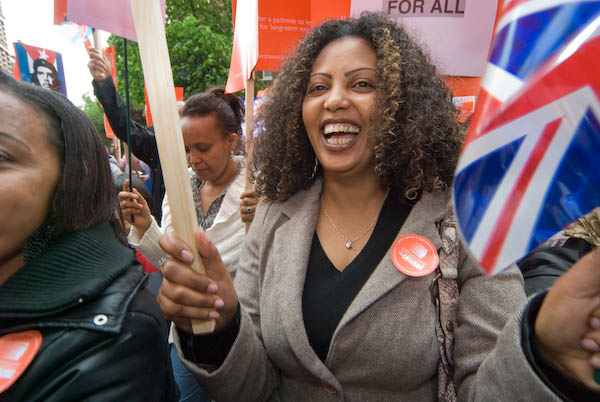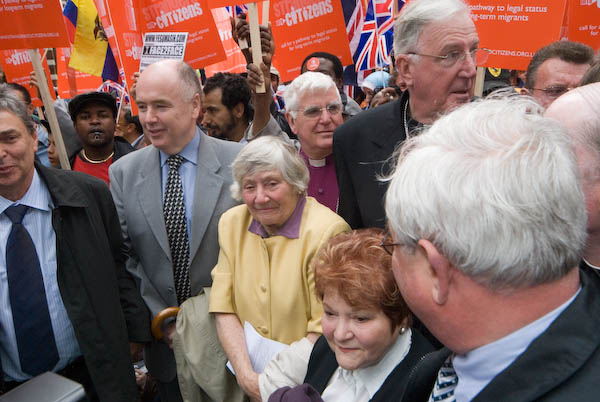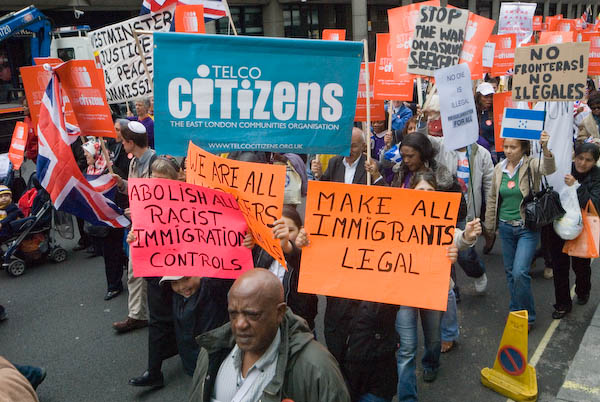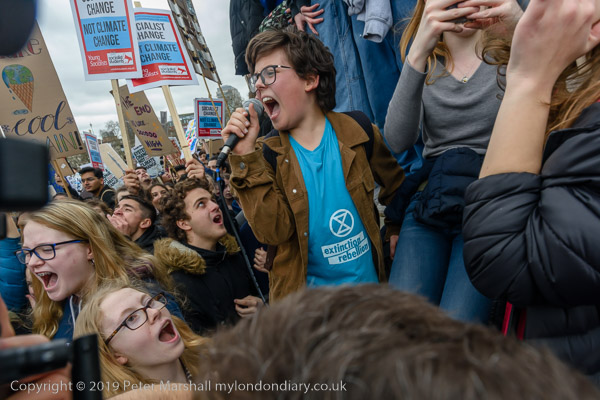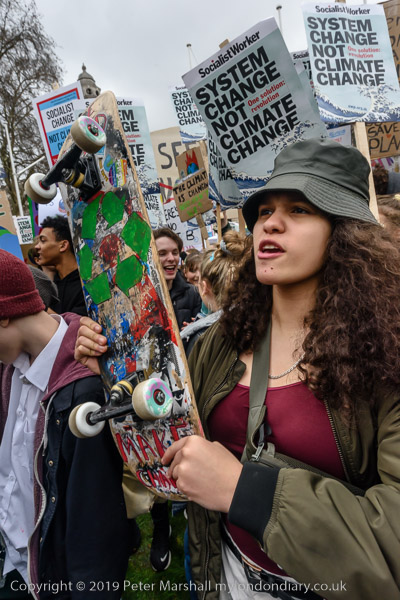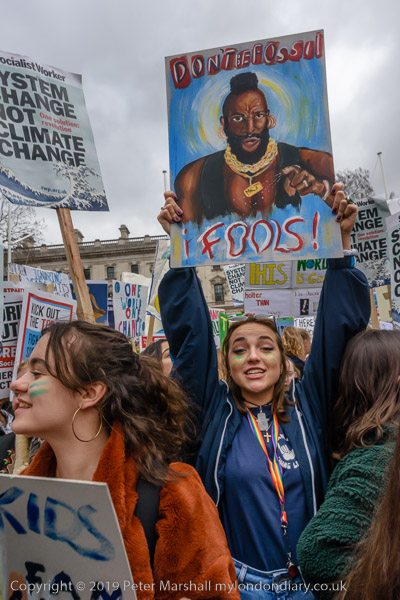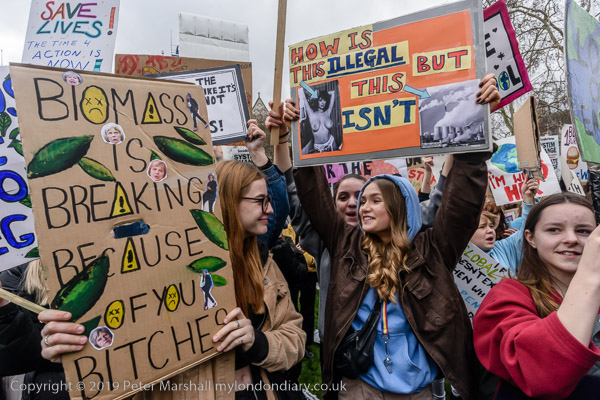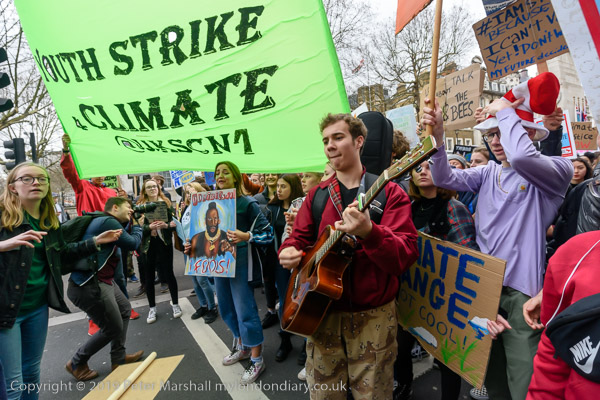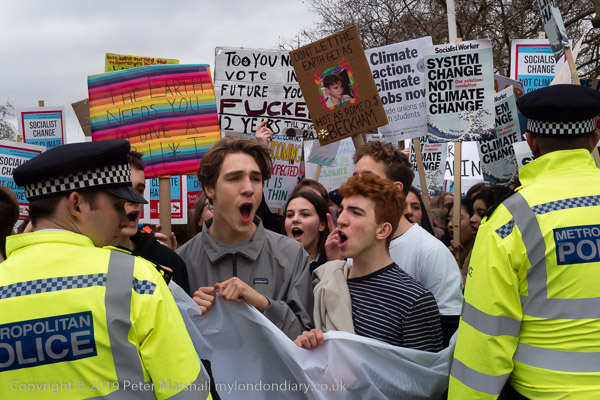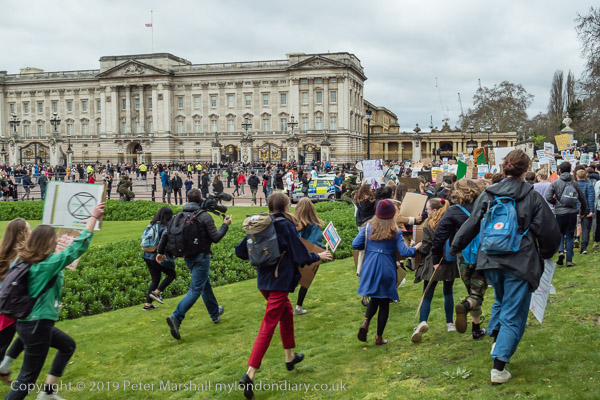The Racist UK Immigration System: The Home Office a couple of years ago commissioned a report following the huge publicity over the Windrush scandal after government ministers had been forced to agree to educate all Home Office employees about our colonial history and the experiences faced by black people coming to the UK.
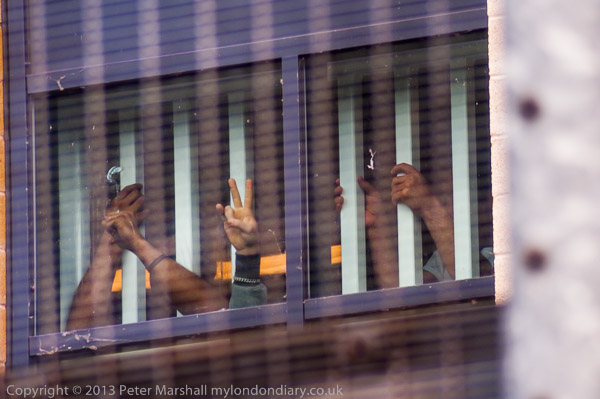
The report, “The Historical Roots of the Windrush Scandal“, by a well-known historian the Home Office refuses to name, details how the whole history of post-war British immigration legislation since the Second World War was “designed at least in part to reduce the number of people with black or brown skin who were permitted to live and work in the UK“, reflecting the “racist ideology of the British Empire.”
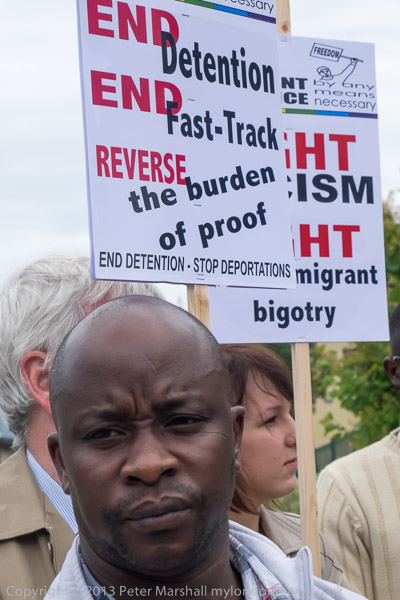
For over a year politicians and others have been calling for the report to be published but the Home Office has refused. Last month it was leaked in full to The Guardian, but is still not available to the public, despite having been paid for by our taxes. Many requests for its publication from MPs including the home affairs select committee and campaigners over the past year had been turned down and a freedom of information request about it was refused.
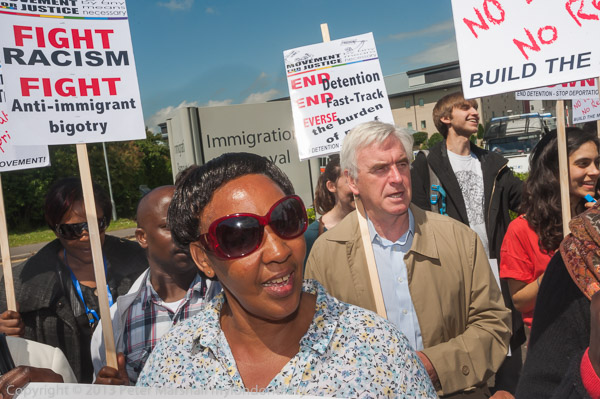
Some speculate that the true reason for it being kept secret was because it was in direct contradiction to last years report from the Commission on Race and Ethnic Disparities which had ludicrously concluded there was “no evidence to suggest that Britain was an institutionally racist place.“

Others suggest the refusal to publish was that it would bring new highly discriminatory policies being introduced – such as the attacks on cross-channel migrants and the deportation of asylum seekers to Rwanda – liable to greater opposition as a development of an already clearly racist immigration system.
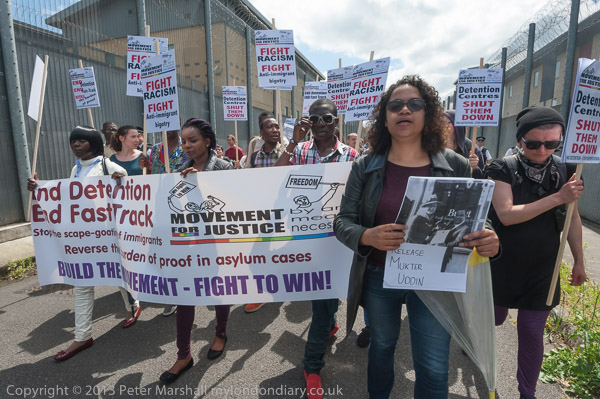
Back in June 2014, when the Movement for Freedom organised a protest on June 7th outside the adjoining Harmondsworth and Colnbrook detention centres on the northern boundary of London Heathrow, the thrust of the protest was against the the unjust ‘Fast Track System’ and mistreatment of detainees by private security firms inside these immigration prisons.
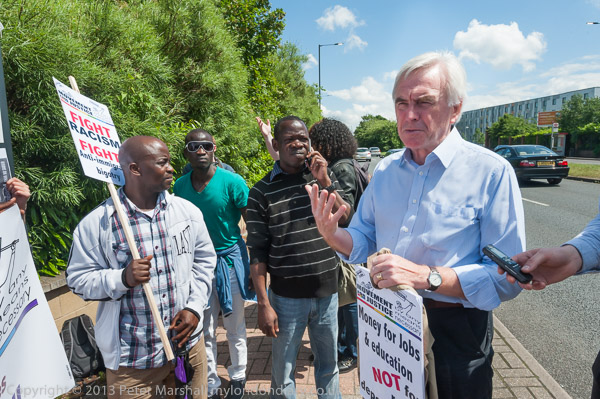
Local MP John McDonnell who came to speak told the protest that when he first became MP for the area in 1997 the immigration detention centre was only a small building housing a dozen or so detainees rather than the two large blocks the protesters were in front of. The protesters argue that immigration detention is almost entirely unnecessary, existing only to deter immigration and harass and punish those who come here to seek asylum.
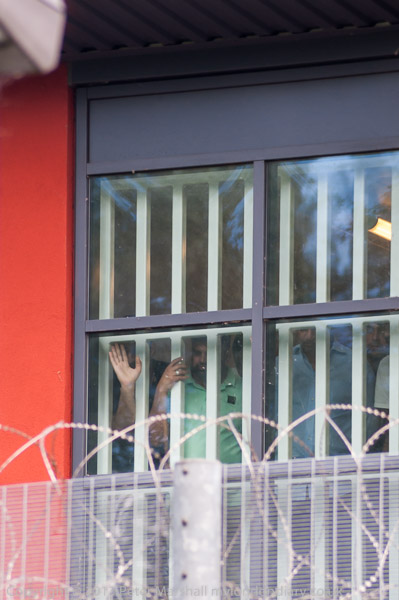
The fast track system was set up with the deliberate aim of deporting people before they had time to put together the evidence that would enable them to properly present their case to remain. You don’t get a certificate given to you for being tortured or raped but our system treats all of them as guilty, trying to evade our immigration laws and rather than the Home Office having to prove their stories are fabricated calls on them to provide proof of threats, torture, rape and other events that forced them to flee. Legal challenges including that by Detention Action in 2015 found “rules setting the tight timescales for asylum-seekers to make appeals were unlawful and ‘ultra vires’ and that the strict time limits in and of themselves were ‘structurally unfair’.”
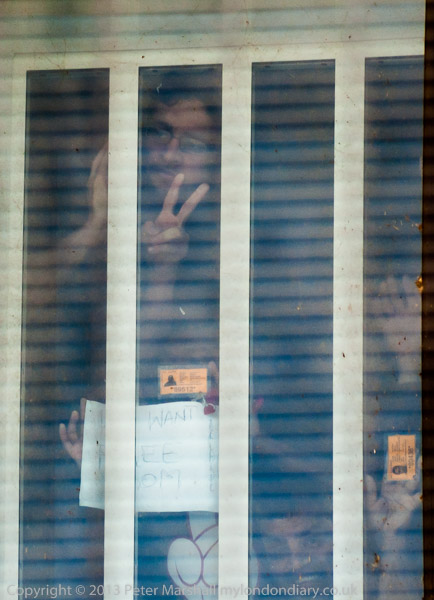
Although the legal judgements led to the suspension of DFT, the deportations of asylum seekers to Rwanda currently about to take place clearly represent a ratcheting up of this punitive approach and seem likely also to be successfully challenged in the courts – thought not before hundreds or thousands have been wrongfully deported.
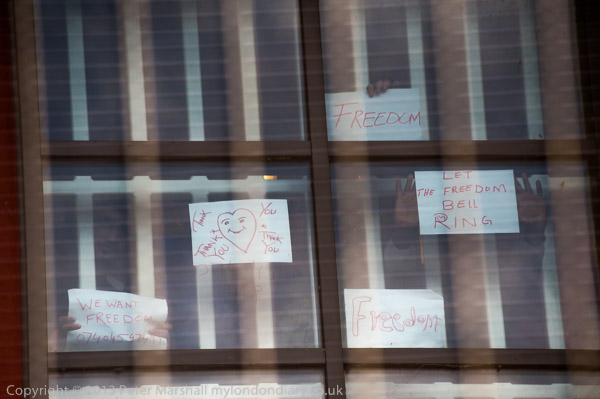
The detention centres were built on a site which has a private road leading to a BT site at the rear. After the speeches on the public highway in front of the site, the marchers walked down this road, making a lot of noise chanting and shouting as well as with whistles and other noise-makers. Detainees came to the windows and waved thanking the protesters for their support, and some were able to communicate using mobile phones.
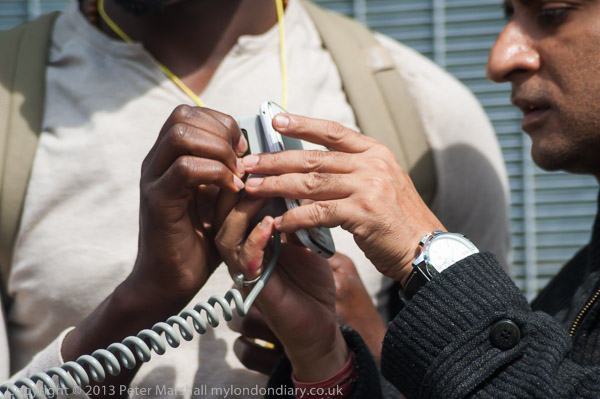
The two detention prisons are both surrounded by 20 foot high fences, the lower half solid metal sheets and the upper half with a dense solid wire mesh, which makes photographing the windows difficult. But we could clearly see the detainees and they could seem the long banner with the message ‘Stop Racism – End Fast Track – End Detention’ which was held up, and we could make out some of the messages they had written calling for freedom.
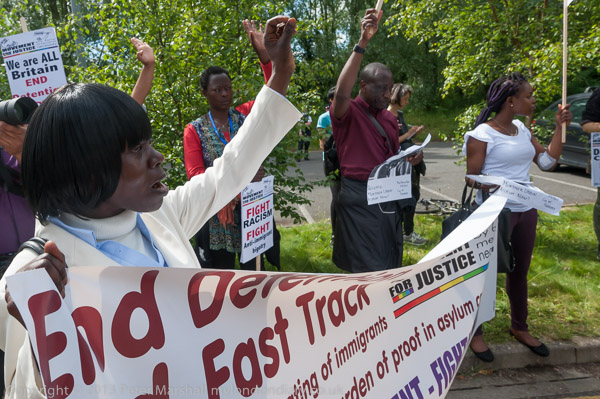
We were able to walk completely around the Harmondsworth building (but not the higher security Colnbrook one) and when I left the march organisers were planning to return their route in the opposite direction as they had so many phone calls from those inside, but I had to leave.
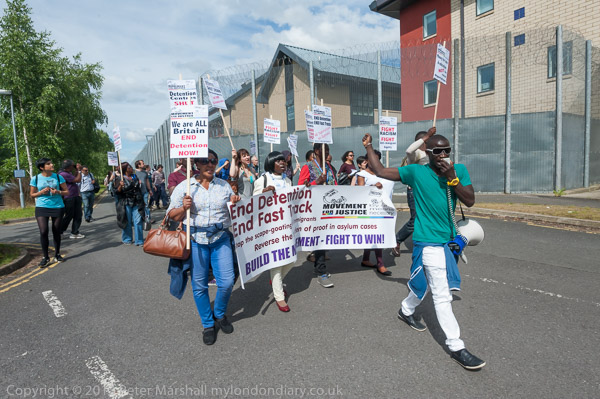
Diane Abbott published an opinion piece in The Guardian on the leaked report at the end of May this year, “The truth is out: Britain’s immigration system is racist, and always has been. Now let’s fix it“. Unfortunately I think our current government is unlikely to have any interest at all in doing so. She ends her piece: “The system is calibrated for racism. It always was. We know it, and now we know that, behind closed doors, Priti Patel’s Home Office knows it. The dirty secret is no longer secret.”
